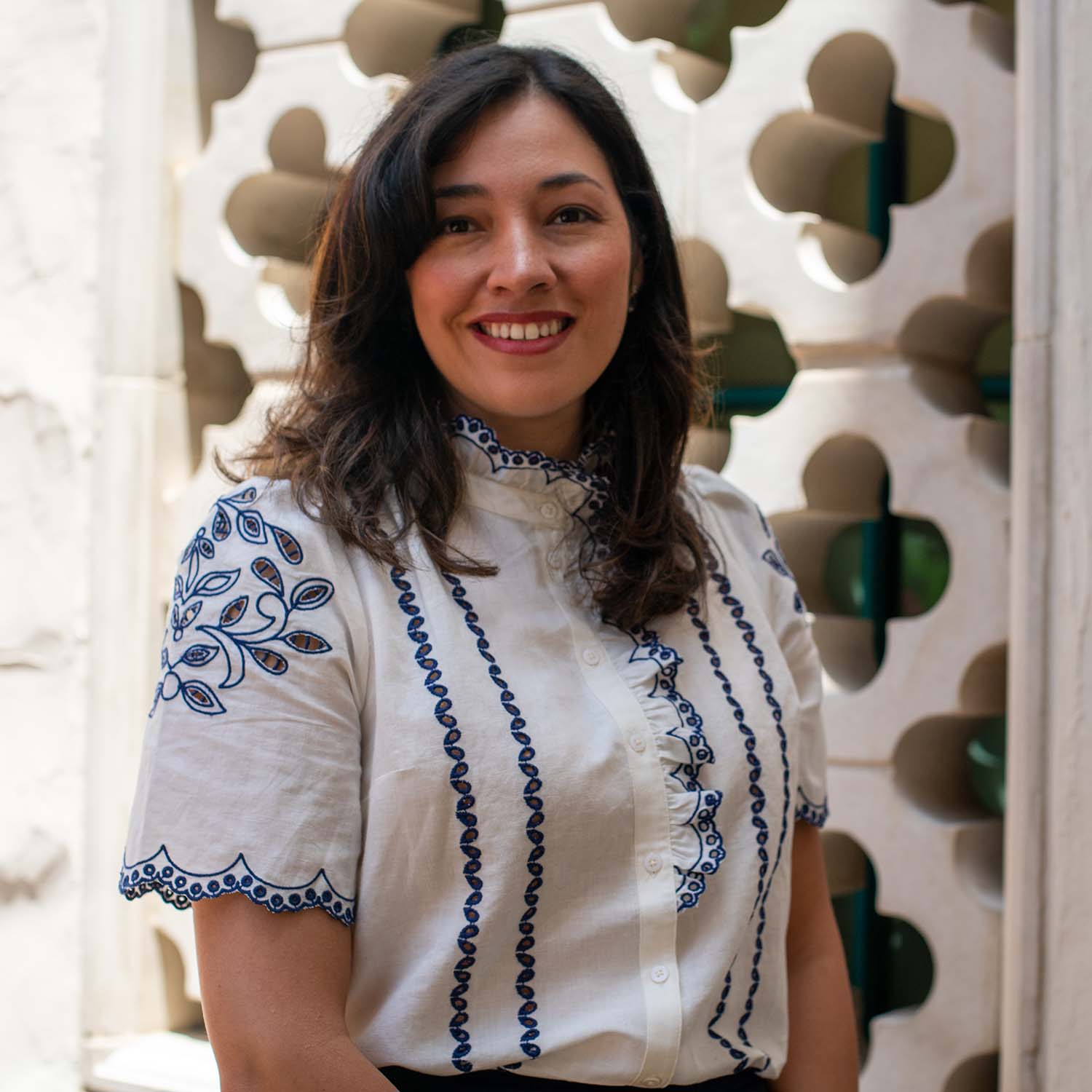NCSER continues its series spotlighting the recently funded Early Career Development and Mentoring Grants Program principal investigators with an interview with Ana Dueñas, assistant professor in special education at San Diego State University. Dr. Dueñas is conducting research aimed at improving outcomes for Latine transborder caregivers and their young children with or at risk for autism. We are pleased that this blog also honors Hispanic Heritage Month.
How did you become interested in studying early intervention for Latine children on the autism spectrum?

As a first-generation Mexican cis-gender woman who was raised in a bicultural transborder community alongside the San Diego/Tijuana border, I learned to navigate a shifting identity—speaking English and Spanish fluently to feel accepted by both communities and managing schooling and housing across borders. Like many other children of Mexican immigrants, I served as a translator, social worker, and advocate for my parents. These experiences, along with my sensitivity to the unique needs of this population, inform how I approach community-engaged research. I am also very aware of how the biases that my education and training in special education and applied behavior analysis influence my approach to intervention research, particularly in light of the history of deficit-driven rhetoric and a medical model of disability in these fields. I aim to be mindful of the power differential that is often associated with higher education, social class, and researcher institutions in my interactions with the families I support.
My interest in building partnerships with Latine caregivers of children with autism began 10 years ago. Earlier in my career, I was a social worker for the California Regional Centers, a non-profit organization that provides services, advocacy, and support to individuals with developmental disabilities and their families. There I gained firsthand awareness of the behavioral health disparities faced by historically minoritized families (delayed diagnosis and access to culturally relevant services). Now, as a junior faculty member and researcher, I bring these experiences to my work and hope to form genuine relationships with the Latine community to better inform autism intervention research.
What are some of the unique challenges and needs of your study population?
I hope to understand these issues in depth more throughout this project. What we know from the literature about the Latine community more broadly is that they face significant disparities in access to timely diagnosis and treatment for their autistic children. This racial disparity is exacerbated in rural communities, or “service deserts” like the Imperial Valley of California, where this project is situated. The transborder community as a subgroup of the larger Latine community has very specific needs that may create a mismatch in evidence-based practices. Some points of mismatch are logistical and environmental—living and working across borders—which may lead to limited compliance, attendance, or engagement in intervention. Other points of mismatch may occur because Latine families may have a history of working with staff that lack cultural competence and therefore have few positive experiences receiving early intervention services. Further, though my project doesn’t focus on families who are undocumented, transborder families may be dealing with unique issues related to immigration status—threats of deportation, housing insecurity, and limited access to physical and mental healthcare.
What broader impact are you hoping to achieve with your research?
Through my research, I hope to address the behavioral education disparities among marginalized populations, as they undermine the quality of life and opportunities for autistic children and their families, particularly among families exposed to vulnerable circumstances. My study addresses one small component of the many disparities that occur across a continuum from identification to treatment to improve the match between evidence-based interventions and the specific needs of marginalized individuals. Many interventions were developed with minimal input from ethnic and/or racially marginalized communities. Though there continues to be an implementation fidelity versus cultural adaptation debate, without sensitivity and responsiveness to the unique needs of communities, interventions may fail to be adopted. In my work, I begin with an assessment to ensure that the intervention is relevant to community needs and desires.
What advice do you have for other early career researchers?
Don’t give up. Understand and harness your value. Follow your instinct. Seek mentorship.
Ana Dueñas demonstrates passion and meaningful personal connection to her research. We are excited to follow her work and see what lies ahead in her academic career trajectory in special education.
This blog was produced by Emilia Wenzel, NCSER intern and graduate student at University of Chicago. Katherine Taylor (Katherine.Taylor@ed.gov) is the program officer for NCSER’s Early Career Development and Mentoring program.